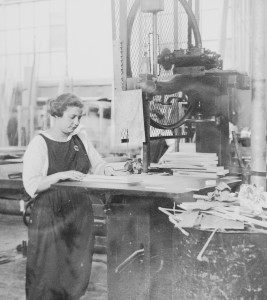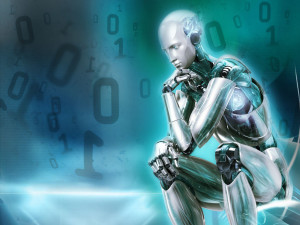In this post we’ll follow our aspiring capitalist, Mr. C, as he sets out to hire employees for his new machine shop. Our goal is to learn something of the true nature of the capitalist relations of production. According to modern economic theory Mr. C is going to have to pay his employees the going […]
Pew Research Center Report: AI, Robotics, And The Future of Jobs
What follows are the key insights from the Pew Research Center’s report “AI, Robotics, and the Future of Jobs.” The Pew Research Center created this shareable (twitter) list of the report’s highlights. It provides a great assessment of what nearly two thousand experts working in these fields are thinking. The horizon in question is the […]
Robot Economics Part 6: Extended Robot Reproduction
content pending
Robot Economics Part 5: Extended Reproduction
content pending
Robot Economics Part 4: Robot Reproduction
Imagine two companies in fierce competition with each other. Both manufacture the same commodity and this commodity is in high demand. The first company retains an entirely human workforce. The second uses automation as extensively as possible. They have robots to load and unload the machines, transport the parts, inspect, assemble, and pack and ship. They […]
Robot Economics Part 3: Simple Reproduction
Now that we are familiar with the basic formula of a capitalist enterprise, c+v+s=w, we can begin to explore how this relates to the economy as a whole. Marx’s reproduction schemes, models of the economy moving through an economic cycle, derive from Quesnay’s tableau économique, and are subjected to a rigorous mathematical analysis in Michio […]
Robot Economics Part 2: The Basic Equations
What follows is a crash course for those unfamiliar with Marx’s economic formulas. Those of you already familiar with this nomenclature may prefer to skip over to the page explaining simple reproduction schemes here. For any capitalist enterprise the following formula applies: The Constant Capital (c) + the Variable Capital (v) + the Surplus Value (s) = […]
Robot Economics Part 1: Tugan-Baranovsky
Can capitalism survive without workers? This was the question posed by Russian economist Mikhail Tugan-Baranovsky (1865-1919), best known for his history of economic crises in England, and for his influence on the development of modern business-cycle theory. His efforts to prove that underconsumption could never lead to an economic crisis led him to some startling conclusions. Writing in […]
Robots Are Us: Some Economics of Human Replacement
This is a link to the National Bureau of Economic Research’s website. There is a working paper here which you can download for a mere $5. I include it here as an example of the type of work being done from a neoclassical perspective on the subject of technological unemployment. Working Paper 20941 http://www.nber.org/papers/w20941 Here […]
Oxford University: The Future of Employment
The following except is from the abstract of an in-depth study done by Carl Benedikt Frey and Michael A. Osborne on the susceptibility of various occupations to computerization. You may be interested in seeing where your line of work falls on their scale. As a machinist, I come in at number 358 with a probability of being […]

